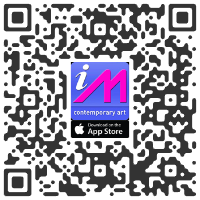" Patriarchy is History"


+39 02 2043555 e-mail:This email address is being protected from spambots. You need JavaScript enabled to view it.
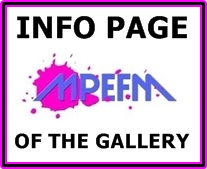

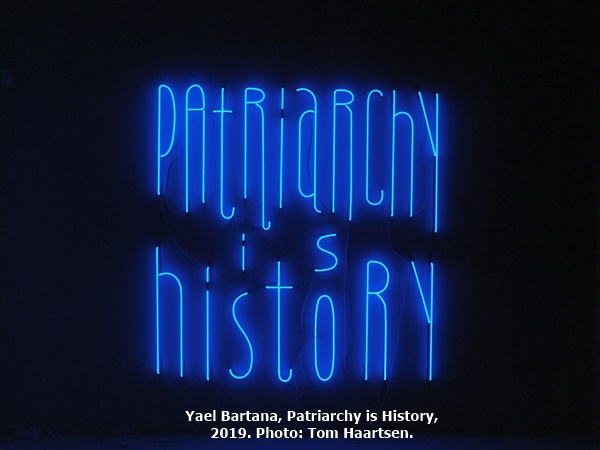
Opening reception : Thursday 27 february dalle 18:00 alle 21:00
mpefm ITALY art press release
Gallery hours :
tuesday - saturday 10.00 - 13.00 | 15.00 - 19.30
and by appointment
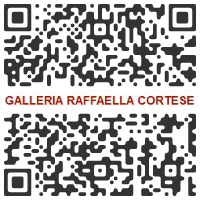
Yael Bartana

Galleria Raffaella Cortese
via a. stradella 7–1–4 20129, Milano - Italy+39 02 2043555 e-mail:


february 28 > may 9, 2020

Galleria Raffaella Cortese, in the year of its 25th anniversary, is proud to present the 3rd solo
show by Israeli artist Yael Bartana in the gallery’s three exhibition spaces.
The title stems from the large neon work “Patriarchy is History” (2019) showed in via Stradella 1, a direct and eloquent statement prompted not only by most recent events and discourses, but as a systemic reality of global History. This new work is yet another outcome of the artist’s ongoing interdisciplinary project “What if Women Ruled the World?” (2017-2018).
At via Stradella 7 Bartana presents, for the first time in Italy, her recent video work “The Undertaker”. Filmed in Philadelphia, the birthplace of American democracy and location of the artist’s solo show at the Philadelphia Museum of Art in 2018, the work generates from the public performance “Bury Our Weapons, Not Our Bodies!”: a public ceremonial march mourns at a funeral lead by a mysterious leader. Sternly holding weapons, the crowd strides through the streets of the city towards Laurel Hill Cemetery, where the burial of the weapons takes place. Inspired by military processions as war celebrations, the project came into being within a reality which celebrates the right to bear arms and use them. Reacting to the second amendment of the US constitution, the ritual assumes a strong meaning as a call for the end of the destructive gun culture. Global symbols of perpetuation of violence and subject of large and poignant discussions on public policy in the Western world, the imagery of weapons hold a renewed symbolic power. The performance in Philadelphia was inspired by the choreography of Israeli movement-composer Noa Eshkol (1924-2007) from 1953.
In the space in via Stradella 4 the artist presents works that are able to sublimate some of the moments of “The Undertaker”. Shot during the performance, and now for the first time showed to the public, the photographic series investigates the several nuances of gestures, elements and symbols that build the representation. The displaced composition on the wall recalls classic and modern painting collections, and acts as a current investigation by Bartana on the way to present photography.
In via Stradella 1, the neon work glares over museum-like display cases, which preserve uncanny fossils of weapons, from different times in history – the very same that the moving crowd depicted in the performance hold in procession.
These “future-past” artefacts catch our eyes as silent witnesses of an apparently archaic age, and yet, attesting a present reality of violence, they suggest an imaginary and speculative future which depends on the potential action of governments and individuals worldwide.
Yael Bartana was born in 1970 in Kfar Yehezkel, Israel. She currently lives and works in Amsterdam and Berlin.
Yael Bartana’s films, installations and photographs explore the imagery of identity and the politics of memory. Her starting point is the national consciousness propagated by her native country, Israel. Central to the work are meanings implied by terms like “homeland”, “return” and “belonging”. Bartana investigates these through ceremonies, public rituals and social diversions that are intended to reaffirm the collective identity of the nation state.
In her Israeli projects, Bartana dealt with the impact of war, military rituals and a sense of threat on every-day life. Between 2006 and 2011, she worked in Poland, creating the trilogy ‘And Europe Will Be Stunned’, a project on the history of Polish-Jewish relations and its influence on the contemporary Polish identity. The trilogy represented Poland at the 54th International Art Exhibition in Venice (2011).
In recent years Bartana has been experimenting and expanding her work within the cinematic world, presenting projects such as ‘Inferno’ (2013), a “pre-enactment” of the destruction of the Third Temple, ‘True Finn’ (2014), that came into being within the framework of the IHME Festival in Finland, and ‘Pardes’ (2015) which was shot during a spiritual journey in the Amazon rainforest in Brazil. Her recent work, ‘Tashlikh (Cast Off)’, is a visual performance that gathers personal objects linked to horrors of the past and the present.
Bartana’s work has been shown in numerous leading museums and biennials: Fondazione Modena Arti Visive, Modena (2019); Manchester International Festival, Manchester (2017); Philadelphia Museum of Art (2018, 2016); Golden Thread Gallery, Belfast (2017); Musée cantonal des Beaux-Arts, Lausanne (2017); The Banff Centre, Alberta (2016); 31st Sao Paulo Biennial, Sao Paulo (2014); 19th Biennial of Sydney, PAMM, Sydney (2013); Walker Art Center, Pittsburgh (2013); Carnegie International (2013), Van Abbemuseum, Eindhoven (2012); Secession Vienna, Vienna (2012); 7th Berlin Biennale, Berlin (2012); 54th Venice Biennale, Venice (2011).
The title stems from the large neon work “Patriarchy is History” (2019) showed in via Stradella 1, a direct and eloquent statement prompted not only by most recent events and discourses, but as a systemic reality of global History. This new work is yet another outcome of the artist’s ongoing interdisciplinary project “What if Women Ruled the World?” (2017-2018).
At via Stradella 7 Bartana presents, for the first time in Italy, her recent video work “The Undertaker”. Filmed in Philadelphia, the birthplace of American democracy and location of the artist’s solo show at the Philadelphia Museum of Art in 2018, the work generates from the public performance “Bury Our Weapons, Not Our Bodies!”: a public ceremonial march mourns at a funeral lead by a mysterious leader. Sternly holding weapons, the crowd strides through the streets of the city towards Laurel Hill Cemetery, where the burial of the weapons takes place. Inspired by military processions as war celebrations, the project came into being within a reality which celebrates the right to bear arms and use them. Reacting to the second amendment of the US constitution, the ritual assumes a strong meaning as a call for the end of the destructive gun culture. Global symbols of perpetuation of violence and subject of large and poignant discussions on public policy in the Western world, the imagery of weapons hold a renewed symbolic power. The performance in Philadelphia was inspired by the choreography of Israeli movement-composer Noa Eshkol (1924-2007) from 1953.
In the space in via Stradella 4 the artist presents works that are able to sublimate some of the moments of “The Undertaker”. Shot during the performance, and now for the first time showed to the public, the photographic series investigates the several nuances of gestures, elements and symbols that build the representation. The displaced composition on the wall recalls classic and modern painting collections, and acts as a current investigation by Bartana on the way to present photography.
In via Stradella 1, the neon work glares over museum-like display cases, which preserve uncanny fossils of weapons, from different times in history – the very same that the moving crowd depicted in the performance hold in procession.
These “future-past” artefacts catch our eyes as silent witnesses of an apparently archaic age, and yet, attesting a present reality of violence, they suggest an imaginary and speculative future which depends on the potential action of governments and individuals worldwide.
Yael Bartana was born in 1970 in Kfar Yehezkel, Israel. She currently lives and works in Amsterdam and Berlin.
Yael Bartana’s films, installations and photographs explore the imagery of identity and the politics of memory. Her starting point is the national consciousness propagated by her native country, Israel. Central to the work are meanings implied by terms like “homeland”, “return” and “belonging”. Bartana investigates these through ceremonies, public rituals and social diversions that are intended to reaffirm the collective identity of the nation state.
In her Israeli projects, Bartana dealt with the impact of war, military rituals and a sense of threat on every-day life. Between 2006 and 2011, she worked in Poland, creating the trilogy ‘And Europe Will Be Stunned’, a project on the history of Polish-Jewish relations and its influence on the contemporary Polish identity. The trilogy represented Poland at the 54th International Art Exhibition in Venice (2011).
In recent years Bartana has been experimenting and expanding her work within the cinematic world, presenting projects such as ‘Inferno’ (2013), a “pre-enactment” of the destruction of the Third Temple, ‘True Finn’ (2014), that came into being within the framework of the IHME Festival in Finland, and ‘Pardes’ (2015) which was shot during a spiritual journey in the Amazon rainforest in Brazil. Her recent work, ‘Tashlikh (Cast Off)’, is a visual performance that gathers personal objects linked to horrors of the past and the present.
Bartana’s work has been shown in numerous leading museums and biennials: Fondazione Modena Arti Visive, Modena (2019); Manchester International Festival, Manchester (2017); Philadelphia Museum of Art (2018, 2016); Golden Thread Gallery, Belfast (2017); Musée cantonal des Beaux-Arts, Lausanne (2017); The Banff Centre, Alberta (2016); 31st Sao Paulo Biennial, Sao Paulo (2014); 19th Biennial of Sydney, PAMM, Sydney (2013); Walker Art Center, Pittsburgh (2013); Carnegie International (2013), Van Abbemuseum, Eindhoven (2012); Secession Vienna, Vienna (2012); 7th Berlin Biennale, Berlin (2012); 54th Venice Biennale, Venice (2011).
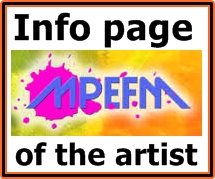 |
Yael Bartana |
Opening reception : Thursday 27 february dalle 18:00 alle 21:00
mpefm ITALY art press release
Gallery hours :
tuesday - saturday 10.00 - 13.00 | 15.00 - 19.30
and by appointment
QR of this press release
in your phone, tablet








